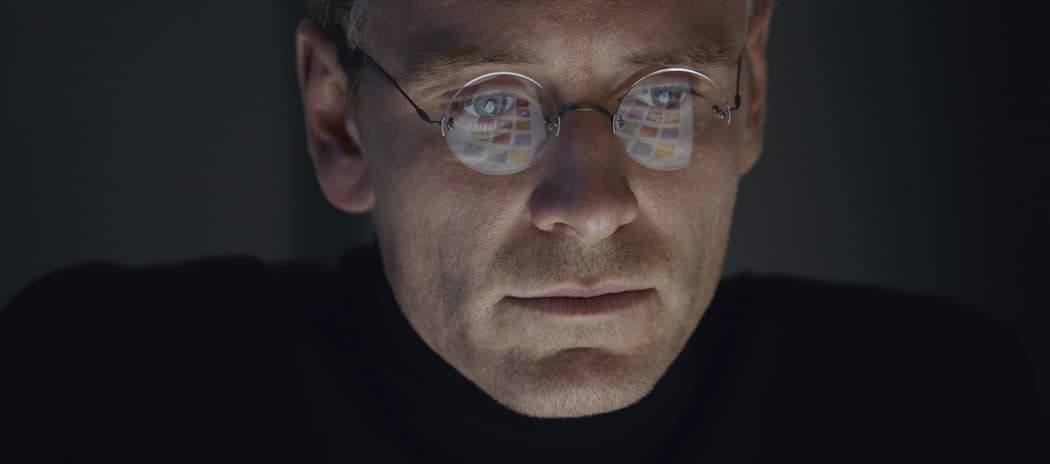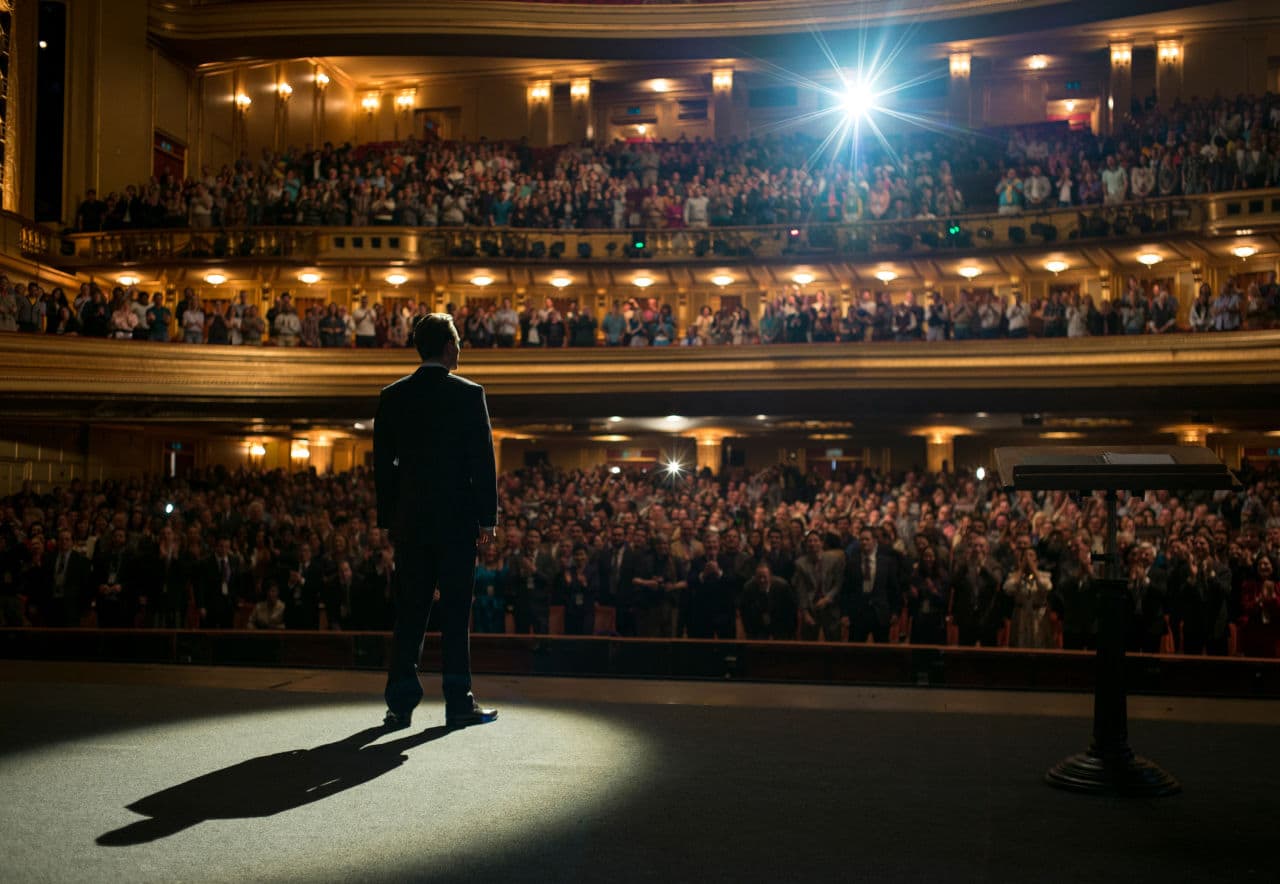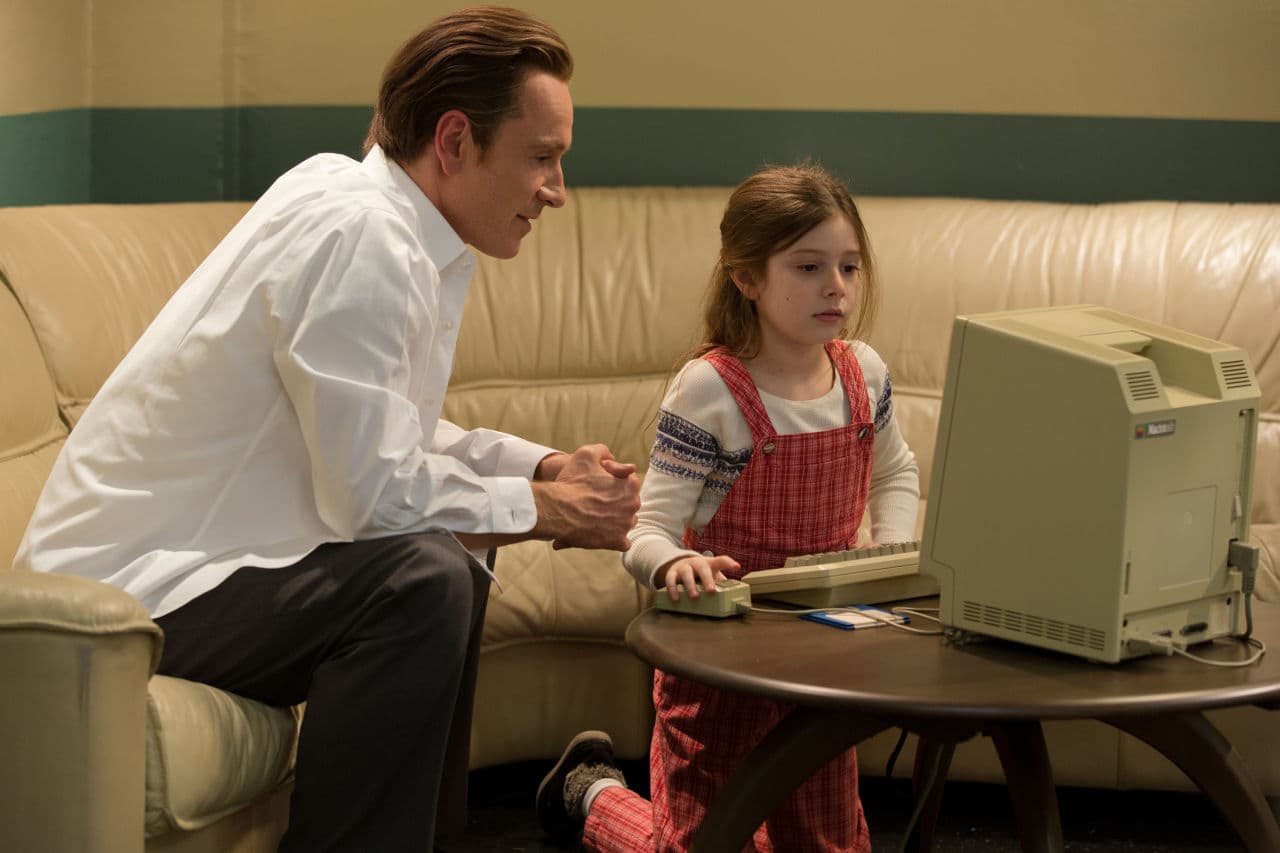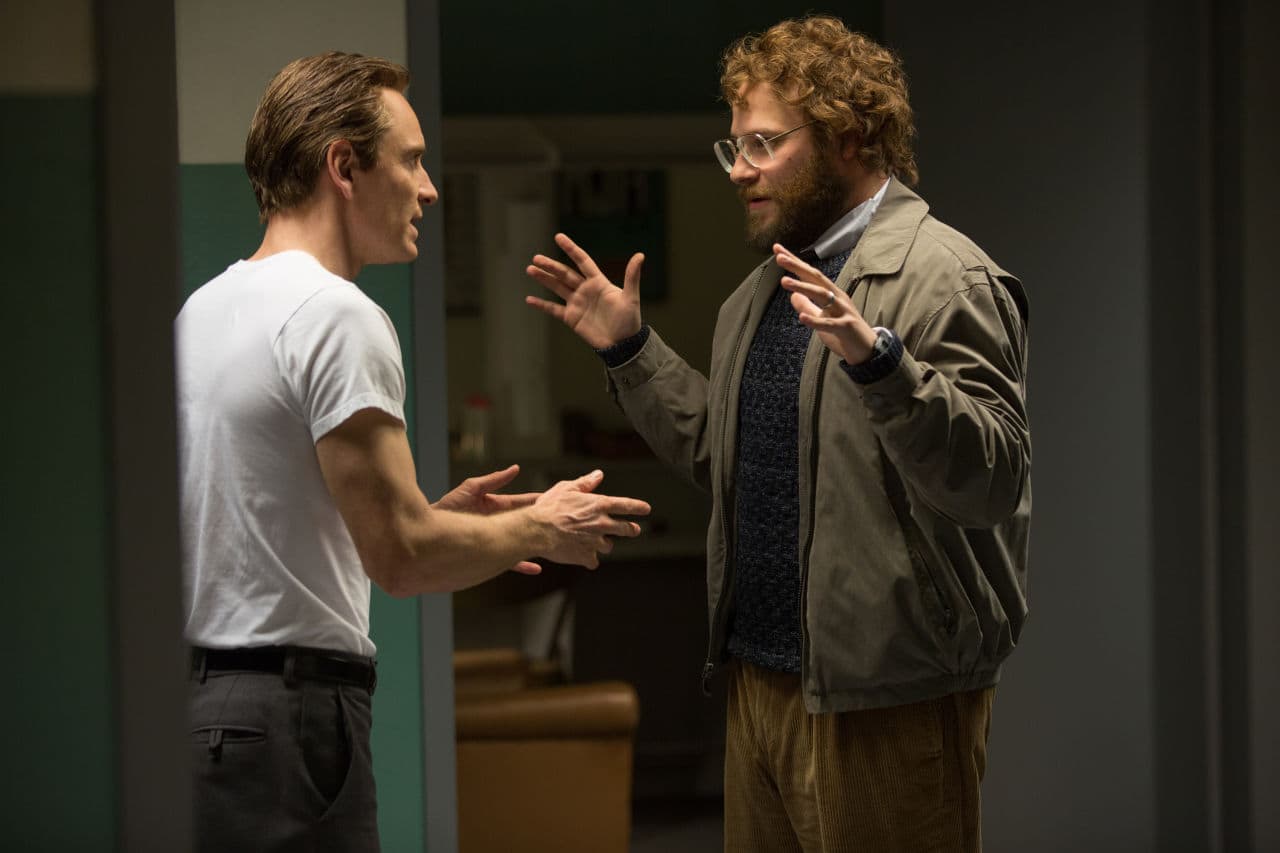Advertisement
3rd Time's The Charm: 'Steve Jobs' Shines In The Hands Of Sorkin And Boyle

"Steve Jobs," the new bio-pic about the iconic Apple entrepreneur, is a film in love with men (a man) who possess prescient clarity.
To underscore that notion, the film opens with a clip of Arthur C. Clarke back in the ‘70s, extolling the virtues of the computer and how it will change the lives of humans one day. H.G. Wells scored some great future picks too, but both those men were primarily writers, neither of them produced or pushed product, something, that the film, helmed by Danny Boyle and written by Aaron Sorkin, asserts Jobs did with unbridled ardor and rabid commitment.
Clearly Boyle and Sorkin have swallowed the "visionary" pill and are all in. It's easy to get that too as they're working with Walter Isaacson's biography, which Jobs had a hand in before his death. As the film suggests, the digital maestro, currently in everyone's pocket, was also a master strategist laying the roots of his stratagem and giving them years to germinate before reaping the rewards. As a result, one can't walk away from "Steve Jobs" without a sense that maybe Jobs saw this coming, his own hagiography, and planted the seeds to brand his legacy and ensure the enduring future of Apple and all things preceded with a lowercase "i".

The film's told uniquely in three chapters, each taking place in the moments leading up to a product launch (staged demos in velvet adorned opera houses) that Jobs, a fan of simple design and closed systems so hackers and hobbyists can't muck with his perfection, proclaims will change the computing industry.
We launch back in 1984 with the unveiling of the Mac, but Jobs (played by Michael Fassbender) is in a mad arrogant snit because the machine crashes when it tries to say "Hello" and the fire department won't allow him to shut off the exit signs to gain total darkness for the overall wowing effect. In the first five minutes, as Jobs runs through a gambit of nail-in-the-coffin problems, much akin to Michael Keaton’s stressed thespian in “Birdman,” but a far different bird, one drinks in an effortless multitasker, a brilliant human able to pull from both the left and right lobes, and an intolerable a—hole with small glimmers of compassion within. In all three product launches, he's tended to by his loyal head of marketing, Joanna Hoffman (Kate Winslet bringing great nuance to a woman clearly in a thankless role and radiating with a deep care for her beloved tormentor) who's the only one who able to push back and still have a job.
The others in the Greek chorus of ghosts past and present who gain an audience as the clock winds down on showtime come in various flavors and shapes. Among the recurring lot are John Sculley (Jeff Daniels in his second knockout performance this year), the CEO from Pepsi Jobs recruited and who ultimately fired Jobs after the Mac failed, Jobs' fellow garage day tinkerer and contrarian fan of open systems, Steve "Woz" Wozniak (a bearish Seth Rogan) and Jobs' personal albatross, his daughter Lisa (played wonderfully by Ripley Sobo and Perla Haney-Jardine over the 14 years) and her troubled mother (Katherine Waterston who was so kinky in "Inherent Vice"), who, in the depiction, is her own worst enemy.

For those not in the know, Jobs was adopted. His career too at Apple eerily mirrors his early history: born, rejected and finally brought back into the house with loving arms — his biological mother wanted control of who the adopting parents were (in part that they be wealthy) and the infant Steve was returned by the first set of parental surrogates before landing with the Jobs. His conversations with Sculley about the deep scarring impact those early touchstones had provide deep character plumbing and reveal and deepen the enigma of why Jobs was so quick to deny his paternity of Lisa even after a court, following testing, declared him the father.
Sorkin, who's gone down this path before with "The Social Network," clearly knows how to spin the lives of nerds and tech wizards into tornadoes of barbed dialogue rife with swirls of tension. Boyle too, who's done gonzo, hyperkinetic ventures like "28 Days Later" demonstrated the ability to build tempered human drama with "127 Hours" and does so here as well while folding in some frenetic stylistic flourishes.
The emotional ambiance, a bit on the cold side, gets a heated uplift from Fassbender, who's always been an actor to watch and, as Jobs, finally gets his chance to fully shine at the center of a feature that’s both arty and mainstream. The German-born, Irish-raised thespian, superb in a supporting role as a hateful slave owner in “12 Years a Slave,” poured his entire soul out and onto the screen in "Shame" (one of three collaborations with director Steve McQueen) but did enough people see the movie about a sex addict to register the full depth of his talents? As Jobs, he’s tactically aloof and arrogant while tempered with soul and palpable human struggle underneath. It’s a dangerous balancing act, one that Fassbender pulls off with the panache and confidence of Philippe Petit passing effortlessly between the two towers.

The public infatuation with (or in, as it may be, adoration of) Jobs since his sad and tragic passing in 2011 has spurred two prominent biographies and three films. The other dramatic Jobs movie, aptly and inspirationally titled "Jobs," rode a typical and slack bio-pic arc (cradle-to-the-grave), and as the man behind the Mac, Ashton Kutcher seemed to appear at war with his caged thespian aspirations and MTV smirk. Also earlier this year, Alex Gibney, the man who's made such engrossing documentaries as "Taxi to the Dark Side" (2007) and "Enron: The Smartest Guys in the Room" (2005), delivered his take with "Steve Jobs: The Man in the Machine," which too, got caught up in the matter of historical checkpoints and failed to fully get at the man.
Sorkin and Boyle don’t limit themselves with such mundane restraints, they freely compress and embellish (does a spurned mother and her daughter seeking alms when about to go on welfare really show up 10 minutes before a product demo launch, three times?) and bite into something piquant and tart. It might not be reality, but it's a gripping near-life virtual reality, one that in all its tidiness and tireless attention to the bigger picture (the pursuit of dreams and ideals) would surely please Jobs.
Near the end, Jobs tells the then 19-year-old Lisa (Haney-Jardine), as they stand on the roof of building, where in the halls below, hordes of media are waiting to hear about the sleek and revolutionary iMac, that one day he'll put 500-1,000 songs in her pocket so she won't have to carry a bulky Walkman, it's here too that Boyle and Sorkin finally put Jobs in our hearts.
Tom Meek is a writer living in Cambridge. His reviews, essays, short stories and articles have appeared in The Boston Phoenix, Paste Magazine, The Rumpus, Thieves Jargon, Charleston City Paper and SLAB literary journal. Tom is also a member of the Boston Society of Film Critics and rides his bike everywhere. You can follow Tom on Twitter at @TBMeek3 and read more at TBMeek3.wordpress.com.
